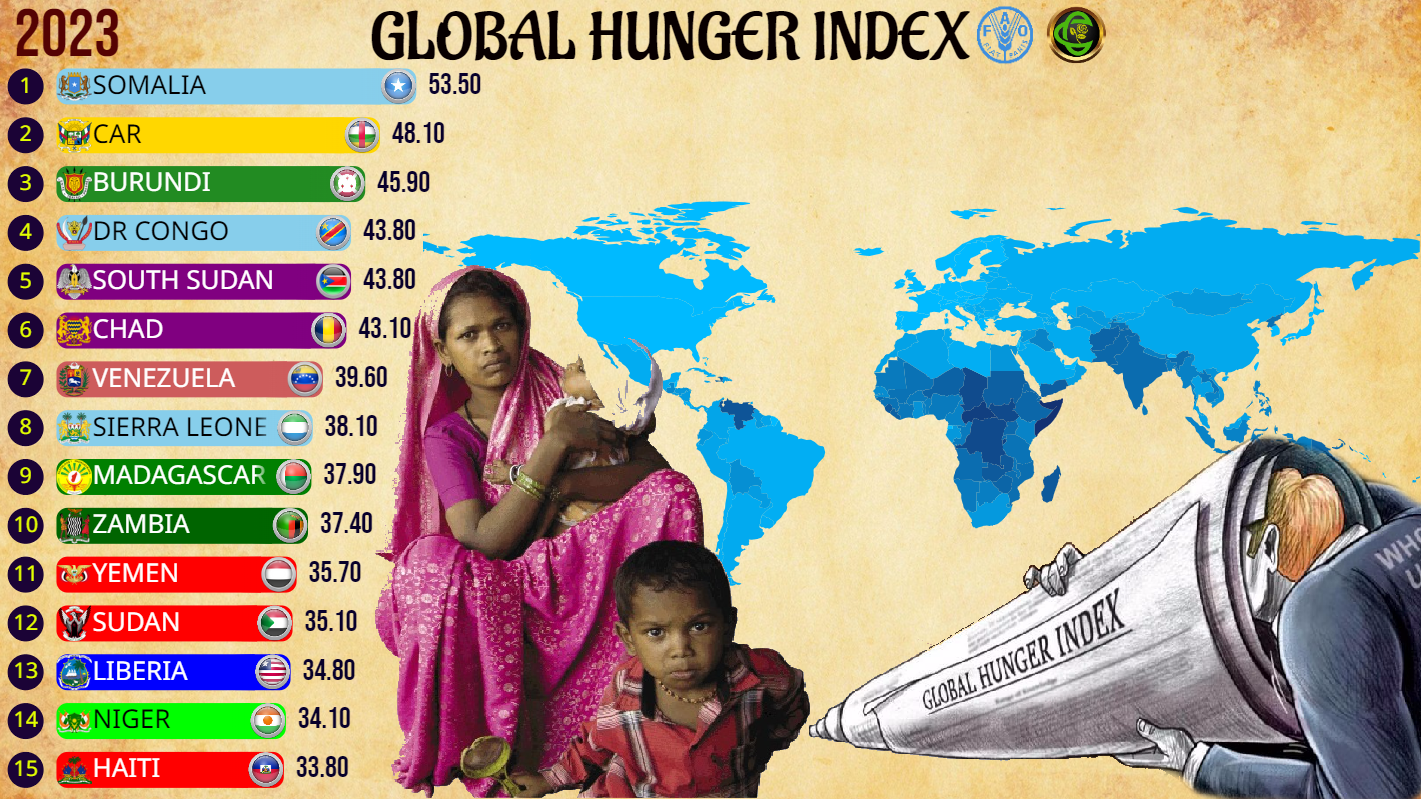Countries With the Highest Global Hunger Index (GHI)
Hunger remains a significant global issue despite ongoing efforts to address it. 690 million people were estimated to be undernourished worldwide. This number includes individuals who do not have access to sufficient quantities of nutritious food to meet their dietary needs.
Various factors contribute to hunger, including poverty, inadequate agricultural infrastructure, conflict, climate change, and unequal distribution of resources. In many regions, particularly in developing countries, poverty is a primary cause of hunger. People living in poverty often lack the means to purchase or produce enough food to sustain themselves and their families.
Agricultural challenges, such as limited access to productive land, water scarcity, and lack of modern farming techniques, also contribute to hunger. Climate change exacerbates these issues, as extreme weather events, changing rainfall patterns, and rising temperatures can negatively impact agricultural productivity.
Conflict and political instability disrupt food production and distribution systems, leading to food shortages and famine in affected regions. Additionally, unequal distribution of resources and food waste further exacerbate the problem of hunger.
Efforts to combat hunger involve a combination of short-term interventions and long-term strategies. Immediate actions include emergency food aid, nutritional interventions for vulnerable populations, and social safety nets to protect the most at-risk individuals.
Long-term solutions focus on improving agricultural practices, increasing investment in rural development, promoting sustainable farming methods, and enhancing access to education and resources for small-scale farmers. Addressing poverty, reducing inequality, and promoting gender equality are also crucial aspects of eradicating hunger.
International organizations such as the United Nations, the World Food Programme, and non-governmental organizations (NGOs) play significant roles in implementing strategies to alleviate hunger. However, sustained commitment and collaboration from governments, policymakers, civil society, and the private sector are necessary to make significant progress in reducing hunger worldwide.

